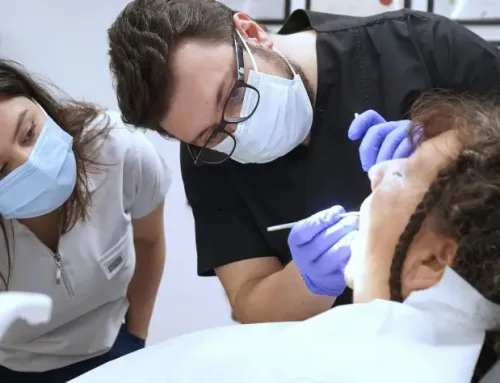Top Pre-Med Programs That Get Students Into Medical School

The top pre-med programs create clear momentum toward medical school. They emphasize strong science coursework, structured advising, and early exposure to clinical and research opportunities. Students gain the academic and professional preparation needed to apply with confidence and clarity.
Medical schools look for applicants who show readiness across multiple dimensions—coursework, test scores, clinical awareness, and personal discipline. Programs that focus on this kind of development give students a measurable advantage. If you’re planning to apply, it helps to know which schools have a track record of helping students get there.
What Makes a Pre-Med Program Truly Effective?
A strong pre-med program gives you a system built around academic rigor, personal support, and preparation for what comes next. Whether you’re starting right out of high school or returning as a career-changer, the quality of your pre-med program has a measurable impact on your readiness for medical school.
Effectiveness isn’t based on prestige alone. It’s shaped by how well a program develops your skills, prepares you for the MCAT, supports your long-term goals, and positions you to stand out during the application process.
Factors That Impact Medical School Acceptance
The structure of your pre-med experience plays a major role in outcomes. These are the elements that matter most:
- Curriculum rigor: Medical schools expect deep competency in biology, chemistry, physics, and math. Programs that push students to think critically and perform at a high level build the foundation for future success.
- MCAT preparation: Embedded test prep, exam simulations, and dedicated advising give students a clear edge when it comes time to test.
- Research opportunities: Exposure to lab work, academic research, or clinical studies adds strength to your application and helps build your scientific perspective.
- Letters of recommendation: Faculty who know you well can write compelling, specific letters. Smaller class sizes and direct mentorship help make those relationships possible.
- Mentorship and advising: Structured academic advising, career coaching, and application guidance create momentum, and reduce avoidable setbacks.
High-Volume vs. High-Support Pre-Med Programs
Some pre-med tracks serve large numbers of students with minimal advising. Others invest in high-touch support, structured mentoring, and faculty engagement. The difference is significant. High-support programs often lead to better outcomes, because students are guided more closely through course selection, MCAT preparation, clinical experience, and application planning.
In high-support programs, students are more likely to stay on track, understand admissions expectations, and complete requirements efficiently. These programs also make it easier to access opportunities like shadowing, research, and mock interviews.
Top 4 Programs That Set You Up for Medical School from Day One
1. Southern California University of Health Sciences (SCUHS) – Purpose-Built for Pre-Med Success
At SCUHS, we’ve designed our programs with medical and health science careers in mind from the very beginning. Every course, concentration, and support structure is aimed at helping students move confidently toward competitive graduate programs in medicine, physician assistant studies, genetic counseling, and related fields.
Our Bachelor of Science in Health Sciences (BSHS) offers a flexible, fully online format built to support busy students—especially those returning to school or transferring in from another institution. You can tailor your academic experience through focused areas of study like Human Genetics, Functional Anatomy, Psychology, and Eastern Medicine. Each track is aligned with in-demand fields in healthcare and offers a strong foundation for clinical or research-based graduate education.
For students seeking to strengthen their applications for med school or PA programs, our Master of Science in Medical Science (MSMS) offers a rigorous, structured curriculum modeled on first-year medical education. With integrated performance tracking, exam-style assessments, and expert faculty advising, it’s a strong step toward graduate readiness.
What sets SCUHS apart:
- 100% online BSHS program with flexible scheduling
- MSMS designed to reflect the structure of first-year med school
- Focused academic tracks tied to real-world health disciplines
- Embedded tools for MCAT-style test prep and academic performance insights
- Direct mentoring from faculty with clinical and research expertise
- Advanced standing opportunities within graduate-level programs
We also offer a range of financial support options to help you plan ahead with confidence. Eligible students can apply for financial aid, explore institutional scholarships, and take advantage of our tuition rate guarantee—locking in tuition costs from start to finish.
Explore your next step in healthcare education. Browse our full list of programs, request more info, or start your application when you’re ready to move forward.
2. University of California, Berkeley
UC Berkeley consistently ranks as one of the nation’s top producers of medical school applicants. With a rigorous science curriculum and access to world-class research facilities, students gain the academic and investigative experience that medical schools value.
The university offers extensive pre-health advising services and has a high volume of peer-led organizations focused on medicine, public health, and clinical volunteering. Berkeley’s competitive student body often leads to strong MCAT performance and placement into a wide range of medical schools across the country.
3. Stanford University
Stanford’s pre-med students benefit from direct access to extensive medical research and mentorship from faculty deeply involved in clinical innovation. The university’s reputation for excellence in science and medicine attracts top-tier applicants and offers significant support for students pursuing MD and MD-PhD tracks.
Through partnerships with Stanford Medicine, students engage in research early and often, while also gaining clinical experience through volunteering and internship placements.
4. UCLA (University of California, Los Angeles)
UCLA offers strong pre-health programs on the West Coast, with a curriculum that emphasizes biomedical sciences, clinical exposure, and community engagement.
Clinical experience is built into the campus ecosystem, with hands-on learning opportunities. UCLA supports a large population of pre-med students with robust advising, peer mentorship, and MCAT prep resources.
The Role of MCAT Preparation & Academic Advising in Pre-Med Success
Two of the most critical components of a strong pre-med experience are test preparation and academic advising. These systems shape how competitive and confident students feel when it’s time to apply. Strong scores and thoughtful guidance open doors. The structure that supports both can have a direct impact on outcomes.
Programs that invest in MCAT readiness and personalized advising are often the ones that produce well-prepared applicants who understand the process and know how to navigate it.
How MCAT Preparation Shapes Medical School Outcomes
The MCAT is a key part of the med school admissions process. Schools use it to assess academic readiness and compare applicants from different institutions and backgrounds. Scores reflect a student’s ability to synthesize complex information, manage timed pressure, and master a broad range of topics in science, reasoning, and behavioral health.
The strongest pre-med programs offer structured test preparation that begins early. This can include MCAT-aligned coursework, exam-style assessments, study tools, and time management strategies.
Personalized Advising and Program-Level Support
Personalized advising helps students map out long-term goals, identify relevant opportunities, and avoid delays in meeting prerequisites or application timelines. When support is consistent and aligned with a student’s goals, it makes every decision more intentional.
Generalized advising models can leave students without the clarity they need to move forward. In contrast, personalized advising creates momentum by offering direct insight into what medical schools expect, when to apply, and how to present yourself effectively as a candidate.
Programs That Build These Systems In
Some programs integrate MCAT prep and advising directly into the curriculum. At SCUHS, for example, the Master of Science in Medical Science (MSMS) program is built to mirror first-year med school intensity—with USMLE-style assessments, performance tracking tools, and advising that supports each student’s goals. Students receive real feedback on their progress and are guided through each phase of the process with intention.
Your Future in Healthcare Deserves the Right Start
Choosing the right pre-med program means choosing the kind of support that builds long-term momentum. The top pre-med programs not only offer strong academics, but also provide personalized advising, MCAT prep, clinical context, and the flexibility students need to stay committed and keep moving forward.
Whether you’re early in your journey or ready to advance your education, a program built with purpose can make all the difference. Explore our full range of programs, request more information, or start your application today to take the next step with clarity and confidence.
FAQs
What do top pre-med programs typically include?
Top pre-med programs emphasize strong science coursework, MCAT preparation, personalized advising, and access to clinical or research experiences. They also focus on helping students meet med school requirements without delays or confusion. Programs that align academics with real-world expectations—like those tied to healthcare institutions or graduate health sciences—tend to offer the most consistent outcomes for students pursuing medical school.
Do I need to major in biology or chemistry to go pre-med?
You don’t need to major in a science field, but your chosen program must include core prerequisites like biology, chemistry, physics, and math. Many students also explore majors like psychology, public health, or human genetics, especially if they align with long-term career goals. What matters most is that your coursework meets med school requirements and reflects genuine academic interest and performance.
How early should I start preparing for the MCAT?
You should begin preparing for the MCAT at least a year before you plan to take it. Starting early allows you to build a strong foundation through your courses, then shift into dedicated test prep with enough time to review content, take practice exams, and adjust your study plan. Programs that integrate MCAT-focused content into their curriculum can give you a major advantage.
Does SCUHS help students prepare for medical school?
Yes—our programs are designed to build medical school readiness from the ground up. Both our BSHS and MSMS tracks include academic structure, support systems, and advanced content that align with what med schools expect. Students have access to personalized advising, test-style assessments, and opportunities to strengthen their clinical and research foundation before applying.
Are there scholarships or financial aid available at SCUHS?
We offer financial aid for eligible students, as well as institutional scholarships and a tuition rate guarantee to help you plan with confidence. Our financial support team is available to walk you through options, answer questions, and help make your transition into the program as smooth and affordable as possible.
How do I compare pre-med programs effectively?
Look at how the program prepares students beyond just coursework. Review advising structure, MCAT support, clinical exposure, and graduation outcomes. Class size, faculty experience, and how personalized the student support is can also make a big difference. Strong programs make your next steps clear and help you build toward them with consistency.
Related Posts




